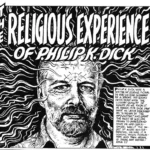Inasmuch as the term concept at present is taken to designate “properties, relations and similar entities… expressed in language by a designator of nonsentential form” and necessarily to involve “an analysis of the nature of a referent,” the term itself can serve most appropriately as the point of entry for a discussion in which I shall be concerned chiefly with contemporary aspects of the question at issue. For the essential elements of the above characterizations, involving the correlations of the syntactic and semantic domains, the notion of analysis, and — perhaps most significantly — the requirements of linguistic formulation and the differentiation among predicate types, beyond strongly suggesting that the proper object of our assigned investigation may be — in the light of these criteria — a vacuous class, nad strongly reminding us of the systematic obligations attending our own necessarily verbal presentation and discussion of this presumed subject, provide the important reminder that there is but one kind of language, one kind of method for the verbal formulation of “concepts” and ther verbal analysis of such formulations: “scientific” language and “scientific” method. Without even engaging oneself in disposing of that easily disposable, if persistent, dichotomy of “arts” and “sciences” (or, relatedly, “humanities” and “sciences”) — that historical remnant of a colloquial distinction — it only need be insisted here that our concern is not whether music has been, is, can be, will be, or should be a “science,” whatever that may be assumed to mean, but simply that statements about music must conform to those verbal and methodological requirements which attend the possibility of meaningful discourse in any domain.
Picked up this Norton Perspectives on Contemporary Music Theory from D.G. Wills’ dollar books today and was greeted by the most hilarious imaginable opening to an essay, in this case Milton Babbitt’s “Past and Present Concepts of the Nature and Limits of Music.” Believe it or not, dear reader, he never quite makes it to that discussion of the question at issue,



Leave a Reply